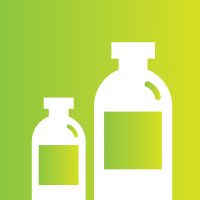
Dr. Andrei Krassioukov and his research team are currently recruiting SCI participants for a clinical research study investigating the effects of fesoterodine (TOVIAZ®) on episodes of high blood pressure triggered by bladder contractions.
Unlike regular hypertension, individuals with episodes of high blood pressure cannot be treated with regular blood pressure medicine because they do not consistently experience high blood pressure. If episodes of high blood pressure are left untreated or not managed properly, individuals become at risk of developing chronic cardiovascular complications.
This research study is proposing that by treating urinary bladder dysfunction with fesoterodine (brand name Toviaz) and preventing the bladder muscle from contracting, we will decrease the triggers responsible for these episodes of high blood pressure that are known as autonomic dysreflexia (AD). By reducing the number of AD episodes we hope to ameliorate symptoms of this condition, and consequently reduce chronic cardiovascular complications for individuals with SCI.
Eligible participants will undergo a series of tests before, during, and after 12 weeks of treatment. Additionally, participants will be asked to complete a series of questionnaires, some of these questionnaires will be completed at home.
Why should you participate in this study?
It is not known if participants will derive any direct benefit from participating in this study. There is no cost for tests, examinations, and medical care required as a part of this study. Some of these costs, such as 24hour ambulatory blood pressure monitoring, may be part of a participants routine care that may normally be paid out of pocket. It will be provided at no cost to participants. We hope that the information learned from this study can be used in the future to benefit other people with a similar disease.
You may be eligible to participate in the study if you meet all of the following conditions:
- A male or female 18 to 55 years of age
- Chronic (> 1 year post injury) traumatic SCI at or above T6
- Documented presence of autonomic dysreflexia and neurogenic detrusor overactivity during urodynamic studies
- Hand function to perform clean intermittent catheterization
- Must have two weeks of bladder and bowel history before visit 2
- Must be willing and able to comply with all study visits and study procedures
- Must be able to understand and complete study related questionnaires
- Women of child-bearing potential must not be intending to become pregnant, currently pregnant, or lactating. The following conditions apply:
Women of childbearing potential must have a confirmed negative pregnancy test prior to the baseline visit
Women of childbearing potential must agree to undergo monthly urine pregnancy tests and have a confirmed negative pregnancy test in order to continue to receive study drug.
Women of child-bearing potential must agree to use adequate contraception during the period of the study and for at least 28 days after completion of treatment. Effective contraception includes abstinence.
Sexually active males with female partners of child-bearing potential must agree to use effective contraception during the period of the trial and for at least 28 days after completion of treatment. - Must be able and willing to provide Informed Consent.
The following conditions may prevent you from entering this study and should be made known to the Principal Investigator:
- Acute medical issues that in the investigator’s judgment would compromise participant safety in this study (for example, clinically significant renal or hepatic disease; acute urinary tract infections, pressure sore, active heterotopic ossification, newly changed antidepressant medications, unstable diabetes, glaucoma, or myasthenia gravis).
- A hypersensitivity to tolterodine (available as Detrol or Detrol LA), soya, peanuts, or lactose.
- Recent treatment with Botox (within 9 months of visit 2)
- Recent treatment with other anticholinergic medications (within 3 months of visit 2)
- Use of any medication or treatment that in the opinion of the investigator indicates that it is not in the best interest of the patient to participate in this study.
- Must not be a member of the investigational team or his /her immediate family.
Enrolled participants will receive $50 per visit for participation in this study to offset the cost of travel for study visits. Participants will also be reimbursed up to $12 for parking at UBC hospital; free parking at the Blusson Spinal Cord Centre is available for research participants with a valid SPARC pass.
The study will take place at the Blusson Spinal Cord Centre, UBC Hospital Bladder Care Centre, and by phone.
For more information or to sign up to participate
please contact the study coordinator Andrea Ramirez by email or call 604-675-8856.

